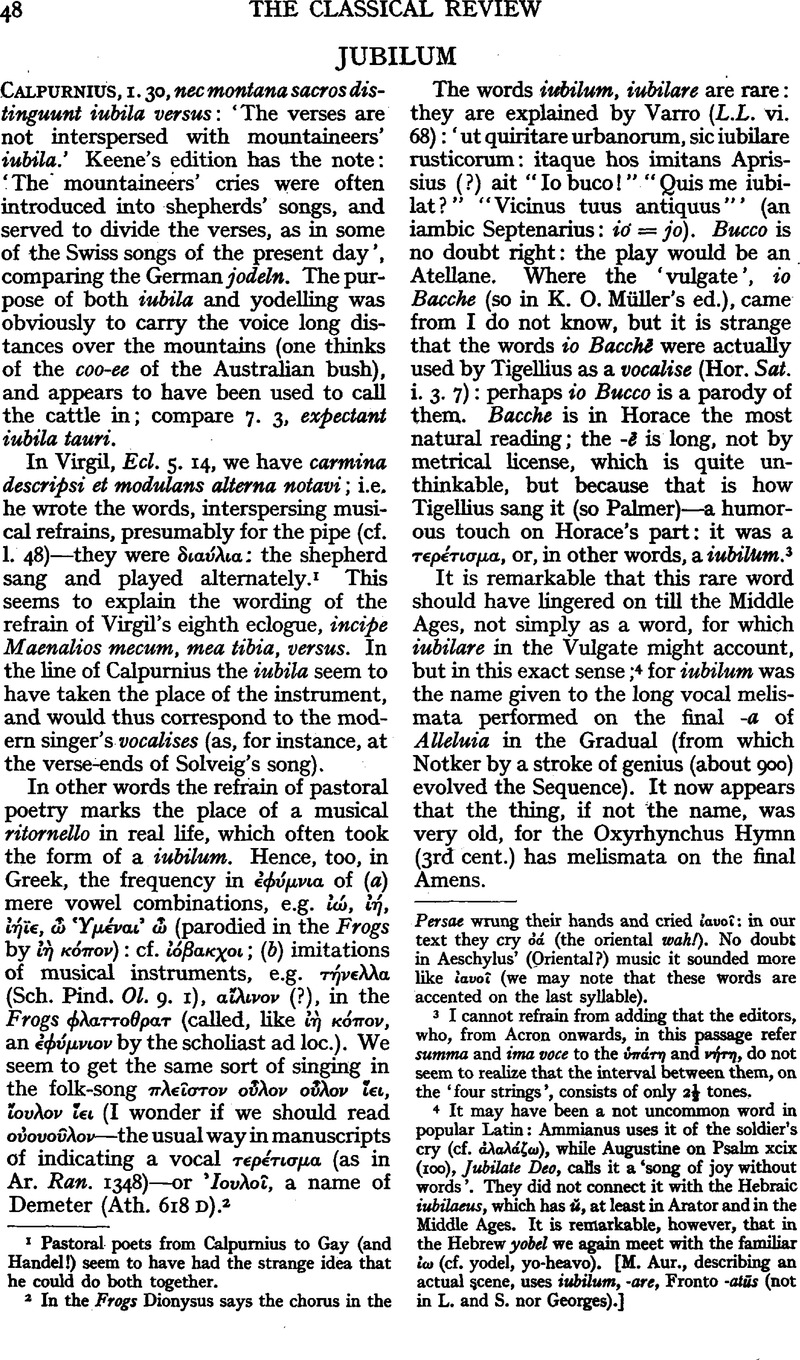No CrossRef data available.
Article contents
Abstract

- Type
- Review Article
- Information
- Copyright
- Copyright © The Classical Association 1947
References
page 48 note 1 Pastoral poets from Calpumius to Gay (and Handel!) seem to have had the strange idea that he could do both together.
page 48 note 2 In the Frogs Dionysus says the chorus in the persae wrung their hands and cried ίαύο: in our text they cry (the oriental wah!). No doubt in Aeschylus’(Oriental?) music it sounded more like ίαύο (we may note that these words are accented on the last syllable).
page 48 note 3 I cannot refrain from adding that the editors, who, from Acron onwards, in this passage refer summa and ima voce to the ὑпγη and υἠγη), do not seem to realize that the interval between them, on the ‘four strings’, consists of only 2½ tones.
page 48 note 4 It may have been a not uncommon word in popular Latin: Ammianus uses it of the soldier's cry (cf. λαλζω), while Augustine on Psalm xcix(100), Jubilate Deo, calls it a ‘song of joy without words’. They did not connect it with the Hebraic iubilaeus, which has ŭ, at least in Arator and in the Middle Ages. It is remarkable, however, that in the Hebrew yobel we again meet with the familiar ίω (cf. yodel, yo-heavo). [M. Aur., describing an actual scene, usesiubilum, -are, Fronto -atüς(not in L. and S. nor Georges).]
page 49 note 1 Whether the enigmatic signs of the musical Orestes-papyrus indicate διαΨάλματα or not seems unknown. It is hard to see how they can, as they occur in the middle oflines (as we, at least, print the dochmiacs).


